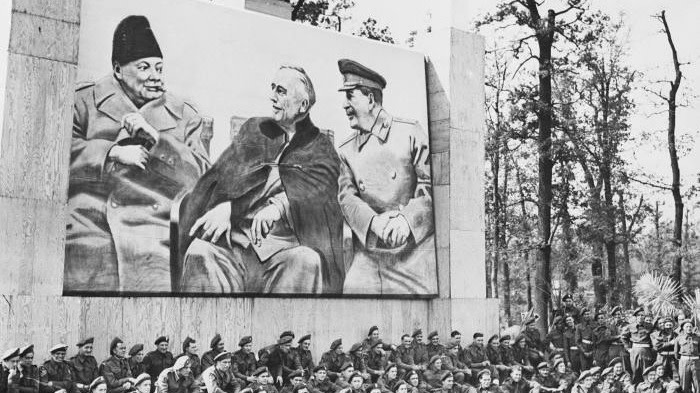IB DP History Class: Stalin’s War by Sean McMeekin — alternative perspectives

Roula Khalaf, Editor of the FT, selects her favourite stories in this weekly newsletter.
This article picked by a teacher with suggested questions is part of the Financial Times free schools access programme. Details/registration here.
Specification Perspectives
Connections with the DP DP History Key Concept: Perspectives. Prescribed subject 3: The move to global war — Case study 2: German and Italian expansion (1933—1940), International response to German aggression. World history topic 11: Causes and effects of 20th century wars. World history topic 12: The Cold War: Superpower tensions and rivalries (20th century). HL option 4: History of Europe — 15: Diplomacy in Europe (1919—1945).
Key terms and ideas Revisionist, myths and misconceptions, counterfactuals
Click to read the article below and then answer the questions:
Stalin’s War by Sean McMeekin — alternative perspectives
This article is an excellent way of engaging students with the way that historians develop new perspectives on well trodden topics. The review describes McMeekin as a historian who believes there are many myths about WW2 that “are in need of busting”. These include that Hitler was primarily responsible for war in the east, a downplaying of the importance of the eastern front, and the leadership of Churchill and Roosevelt in the build up and execution of the conflict.
The article explores many of the ways McMeekin constructs his revisionist arguments. He employs previously underplayed evidence, such as “a statement by Stalin at the end of a drunken evening in the Kremlin in May 1940” as evidence that Stalin had pre-existing war plans. The article also criticises how “in his eagerness to persuade the jury, [McMeekin] relies too much on counterfactuals”, such as suggesting that the winter war of 1939-40 was the key moment when the USSR’s rise to global power could have been halted.
What causes McMeekin to be labelled a revisionist, “myth-busting” historian?
In what ways and with what success does McMeekin challenge misconceptions about Stalin’s role in WW2?
McMeekin is criticised for using counterfactuals because “when we look at the past we must always remind ourselves of what were the real choices before decision makers.” To what extent do you agree with this criticism?
Ned Riley, historyrising.net
Comments